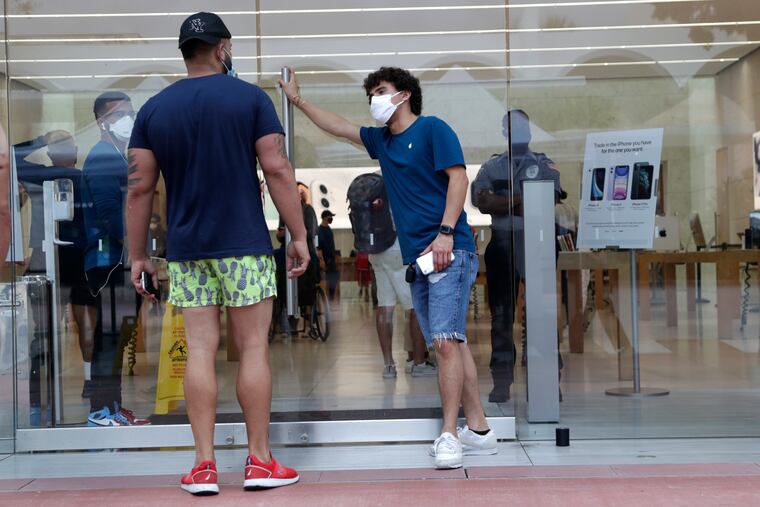Florida sets new daily record with 4,049 coronavirus cases as death toll rises by 40
Florida’s Department of Health on Saturday confirmed 4,049 additional cases of COVID-19, continuing a record-breaking streak for the most new cases reported in a day.

MIAMI — Florida’s Department of Health on Saturday confirmed 4,049 additional cases of COVID-19, continuing a record-breaking streak for the most new cases reported in a day. The state now has a total of 93,797 confirmed cases.
Previously, the highest daily total recorded was on Friday, when 3,822 cases were reported. There were also 40 new deaths announced Saturday, raising the statewide death toll to 3,144.
Coronavirus cases in Florida have consistently been trending up since mid-May, according to a Miami Herald analysis of public and non-public COVID-19 data through June 3. The trends could not be attributed solely to increases in testing, the analysis found.
Despite the rising numbers, Gov. Ron DeSantis said Friday that he did not believe the state would become the next epicenter of the pandemic. He also said the increase was mainly younger people with mild symptoms and there were plenty of hospital beds available.
More than half of the known COVID-19 cases are in South Florida’s four counties — Miami-Dade, Broward, Palm Beach and Monroe. Miami-Dade continues to lead the state with the most confirmed cases and deaths.
One of the tools that officials are relying on to determine if the novel coronavirus situation is improving in the state is hospitalization data. Unlike testing, which might be limited or take days to report results, hospitalizations can help give officials a real-time visual of how many people are severely ill with COVID-19.
» FAQ: Your coronavirus questions, answered.
The health department says it does not “have a figure” to reflect the number of people currently hospitalized and only provides the total number of hospitalizations in its statewide and county-level data. On Saturday, 165 hospitalizations were added, raising the statewide total count to 12,939.
While Florida’s Department of Health is not releasing current statewide hospitalization data to the public, hospitals in Miami-Dade are self-reporting a number of key metrics, including hospitalizations, to the county, which has made this data public. Some provide updates every day; others don’t.
On Friday, 90 people were discharged and 64 people were admitted to Miami-Dade hospitals, bringing the number of hospitalizations for COVID-19 complications to 649, according to Miami-Dade County’s “New Normal” dashboard data.
Scientists are also still working to learn more about the virus, including how many people in the community are infected and have mild or no symptoms, which can make it difficult to determine what percentage of the cases hospitalizations represent.
Testing in Florida has seen a steady growth since the COVID-19 crisis began.
Testing, like hospitalizations, helps officials determine the virus’ progress and plays a role in deciding whether it is safe to lift stay-at-home orders and loosen restrictions.
The recommended number of daily tests needed varies among experts, but the dean of the University of South Florida’s College of Medicine told the governor that Florida needs to test about 33,000 people every day.
Health experts have previously told the Miami Herald that they were concerned the number of pending results listed by the state is an undercount. This is because Florida’s Health Department only announces the number of pending test results from state labs, not private ones — and private labs are completing more than 90% of state tests.
Previously, it has taken as long as two weeks for pending test results from private labs to be added into the state’s official count, making it difficult for officials to project the size and scale of the pandemic in the state. It’s unclear how quickly results are currently being sent to the state from private labs, as the turnaround time varies by lab.